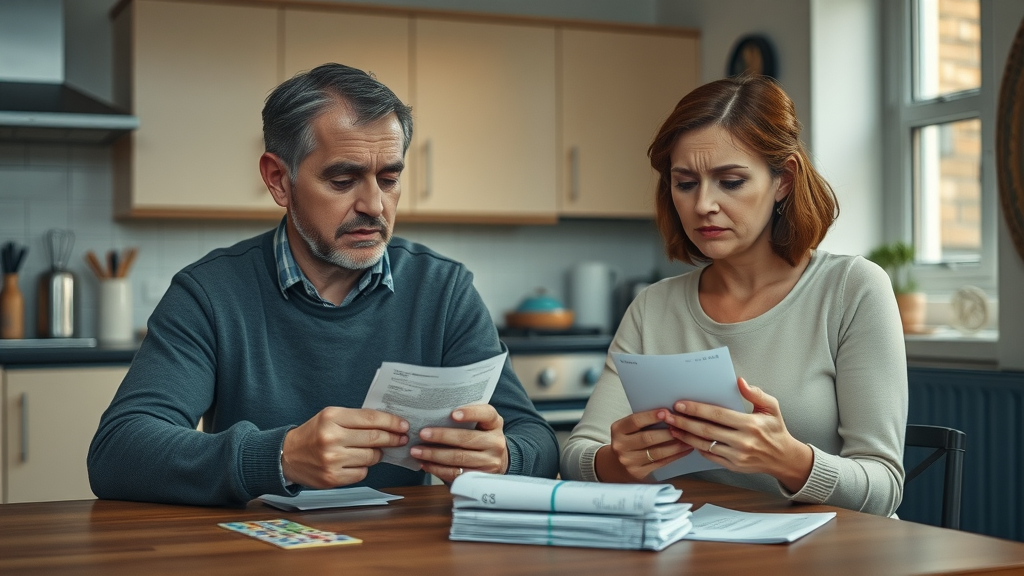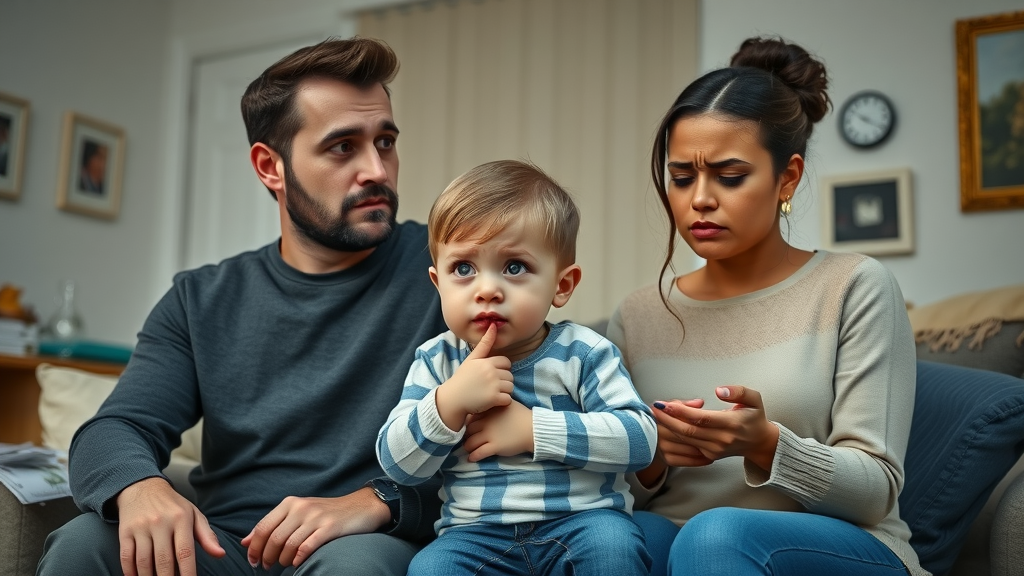Did you know couples who participate in therapy for addiction experience up to 50% higher recovery success rates compared to those who go it alone? If you and your partner are struggling with substance use, you’re not just battling addiction—you’re fighting for your relationship, too. By leveraging couples therapy for addiction, you can repair trust, learn new skills, and build a future together that’s free from the chains of drug abuse and substance misuse. In this article, you’ll uncover the strategies, evidence, and real-life stories that show how cognitive behavioral therapy can transform both recovery and relationships. Why Couples Therapy for Addiction Is a Game-Changer in Substance Abuse Recovery "Research shows that couples engaging in therapy experience up to 50% higher rates of addiction recovery success compared to individual treatment alone." Key topics covered: couples therapy for addiction Substance abuse Relationship functioning Behavioral couples therapy Drug abuse Addiction treatment Couples therapy for addiction has significantly reshaped the landscape of substance abuse treatment. Traditional approaches often focused on the individual, but mounting evidence demonstrates that including partners leads to better outcomes for both addiction recovery and relationship functioning. When both people in a relationship participate, they address trust issues, unhealthy communication patterns, and co-dependent dynamics that often fuel drug abuse and relapse. Imagine a treatment program where both partners work together, set shared goals, and support each other in staying sober—this is what behavioral couples therapy offers. Unlike going to individual therapy, where one’s struggles are managed alone, couples learn to communicate openly and rebuild their connection through guided therapy sessions. This collaboration reduces feelings of isolation in those struggling with addiction and strengthens the motivation to stick with the recovery plan. Not only can this approach lead to higher recovery rates—it can deliver a stronger, more resilient partnership as well. Substance abuse isn’t just an individual issue; it often creates waves that disrupt every aspect of a relationship, eroding intimacy, trust, and shared happiness. Couples therapy intervenes directly in this cycle by helping both partners understand their roles, share accountability, and implement strategies together. By focusing on relationship functioning in tandem with addiction treatment, couples therapy for addiction proves to be more than a complementary method—it’s a genuine game-changer. The Power of Cognitive Behavioral Therapy in Couples Therapy for Addiction Defining Couples Therapy for Addiction and Its Role in Substance Abuse Treatment Couples therapy for addiction is a specialized therapeutic approach designed to support partners navigating the challenges of substance use disorder. Unlike traditional forms of couples counseling, it centers on the intersection between drug or alcohol abuse and relationship distress, recognizing that the two are closely linked. In therapy sessions, both partners become active participants in the recovery process, learning to communicate more effectively and rebuild healthy relationship functioning even amidst substance abuse treatment. The foundation of this treatment method is a mutual understanding that addiction doesn’t just harm the individual struggling—it also damages the bond with their significant other. Therapy is structured to identify and interrupt harmful patterns, encourage shared accountability, and cultivate a recovery plan backed by both partners. The ultimate goal is twofold: assist the individual in overcoming substance abuse and nurture a more resilient, supportive relationship that discourages relapse and fosters long-term happiness. Incorporating a relationship-centered approach into addiction treatment means using proven techniques to identify family member roles, set collaborative goals, and address co-occurring issues like mental health struggles. By redrawing the blueprint for how couples cope with drug abuse, couples therapy opens up new paths for healing, understanding, and growth. How Behavioral Couples Therapy Enhances Addiction Recovery and Relationship Functioning Behavioral couples therapy (BCT) is an evidence-based approach designed specifically to address both substance abuse and relationship functioning. It leverages structured interventions—such as joint goal-setting, positive reinforcement for abstinence, and guided communication exercises—to improve relational trust and reduce the risk of drug relapse. In practice, couples engage in therapy sessions that focus on changing behaviors, rather than only discussing emotions or venting grievances. Therapists help partners identify triggers for substance use and co-create strategies to avoid old habits. This model supports the addicted partner in maintaining sobriety while empowering both individuals to rebuild connection through mutual understanding, empathy, and respect. BCT also provides practical tools to manage daily stressors, prevent relapse, and resolve relational tensions—so recovery is not a solitary burden. By making the relationship itself a part of the treatment program, BCT increases accountability and ensures both partners are invested in long-term addiction recovery. Cognitive Behavioral Techniques Used in Couples Therapy for Addiction Cognitive behavioral therapy (CBT) techniques form the backbone of many successful behavioral couples therapy interventions. In couples therapy for addiction, these techniques are tailored to meet both partners' needs and the specific context of substance use disorder. Common CBT strategies used in addiction treatment include identifying cognitive distortions, challenging negative thinking, and encouraging the development of healthy coping mechanisms. For example, couples may work with their therapist to maintain a “recovery contract”—an agreement that outlines specific behaviors, boundaries, and rewards for progress toward sobriety goals. Learning to express oneself using “I” statements or practicing empathy exercises helps both partners manage triggers and avoid escalation during conflict. Beyond communication skills, CBT also focuses on problem-solving, relapse prevention, and rebuilding emotional intimacy. This means developing plans for high-risk scenarios, setting boundaries with family members or friends who might enable substance abuse, and engaging in regular check-ins to assess progress and adjust the recovery plan as needed. Couples Therapy vs. Traditional Addiction Treatment: A Comparative Table Treatment Approach Engagement Level Relationship Outcomes Relapse Rates Support System Couples Therapy for Addiction High (involves both partners) Significantly Improved (communication, trust, intimacy) Lower (thanks to joint accountability & relapse prevention) Strong (mutual support and empathy development) Individual Addiction Treatment Moderate (focuses on the person alone) Limited or Unchanged (relationship issues may persist) Higher (less relational accountability) Weaker (sole reliance on external supports) Standard Substance Abuse Programs Varies (group or individual focus) Not targeted (little direct focus on relationship functioning) Moderate to Higher Group-based or none Recognizing the Impact of Drug Abuse on Relationships: Why Couples Therapy for Addiction Is Essential Domestic Violence, Communication Skills, and Family Member Well-being Drug abuse and substance abuse can put immense strain on romantic partnerships, often manifesting in poor communication, increased conflict, and sometimes even domestic violence. The ripple effect extends to every family member, causing emotional instability, trust breakdown, and a loss of family harmony. Through couples therapy for addiction , partners are provided with a safe environment to address sensitive topics like partner violence, develop healthy communication skills, and establish boundaries vital for personal safety. Protecting family member well-being isn't just an added benefit—it's central to achieving lasting addiction recovery. A holistic therapy program addresses not only the substance use disorder but also domestic violence risks, emotional co-dependency, and unhealthy relationship patterns. By intervening early with behavioral couples therapy, families gain support in healing all levels of dysfunction brought on by addiction. How Substance Abuse and Addiction Affect Couples and Family Members Substance abuse doesn’t happen in isolation—it disrupts the entire ecosystem of a relationship and the broader family network. The secrecy, financial problems, emotional outbursts, and loss of intimacy commonly seen with active addiction can quickly wear down even the strongest bonds. For many, these struggles lead to recurring relationship problems, codependency, or withdrawal from important family relationships. In many households, addiction treatment is most effective when it's family-centered. Including family therapy or counseling in your recovery plan ensures that family members are educated about addiction, prepared to support their loved one, and equipped to rebuild healthy boundaries. Restoring trust and fostering safe communication helps prevent partner violence, promote mutual support, and strengthen everyone’s mental health. As one leading addiction psychologist notes: "The health of a relationship can directly influence the success of addiction recovery and vice versa." Increased conflict and mistrust Withdrawal from intimacy and shared activities Escalating arguments or domestic violence issues Emotional instability and co-dependency The Process of Couples Therapy for Addiction: Step-by-Step Initial Assessments for Substance Use Disorder and Relationship Functioning The process of couples therapy for addiction begins with comprehensive initial assessments. Both partners participate in sessions where the therapist evaluates the extent of the substance use disorder and the overall health of the relationship. These assessments often include questionnaires about past substance use, communication habits, relationship satisfaction, and any experiences of domestic violence. This foundation is crucial for building a therapy plan tailored to the couple’s unique needs. It allows for the early identification of mental health issues, partner violence, or family member roles that might influence recovery outcomes. By jointly mapping out challenges, both partners become invested in developing a realistic and effective recovery contract. Establishing Recovery Contracts and Goal-Setting Creating a recovery contract is a pivotal step in behavioral couples therapy for addiction. This written agreement outlines mutual expectations, defines abstinence goals, and specifies rewards for achieving milestones in the treatment journey. Each partner’s roles are clearly described, as are strategies for supporting each other when facing triggers or setbacks. Shared goal-setting fosters accountability, builds trust, and ensures both partners have a stake in the addiction recovery process. The therapist acts as a neutral facilitator, helping couples communicate their needs honestly and negotiate realistic expectations for the recovery plan. Such agreements often include protocols for managing relapses, contacting therapists in emergencies, and outlining steps for re-engaging in therapy when difficulties arise. Skills Building: Communication Skills, Conflict Resolution, and Relapse Prevention With foundational agreements in place, couples therapy sessions emphasize skill-building. Communication skills form the bedrock of these sessions, providing tools for active listening, non-defensive responses, and clear self-expression. Conflict resolution techniques further help couples de-escalate arguments and negotiate disagreements in healthy ways. Relapse prevention is a recurring topic, with therapists teaching couples how to identify triggers, avoid enabling behaviors, and develop mutual coping strategies. These skills are rehearsed both during and between therapy sessions, with real-life scenarios encouraged as “homework” to integrate lessons learned. As partners master new interactions, their emotional connection grows and the foundation for long-term recovery strengthens. Ongoing Monitoring, Support, and Adjustments Recovery from addiction is rarely linear. Ongoing monitoring and support ensure that couples can adapt their recovery contract and strategies as circumstances change. Therapists provide regular check-ins, track progress, and help couples navigate setbacks or plateaus. This continuous feedback loop increases each partner’s sense of engagement and provides reassurance that they aren’t alone in the recovery journey. If new mental health or relationship problems emerge—whether related to family therapy, work stress, or partner violence—the therapy sessions are adjusted to address these issues proactively. Relapse is treated as an opportunity for learning, not as a failure, allowing couples to recalibrate and strengthen their resolve together. Behavioral Couples Therapy: Evidence-Based Methods and Benefits Overview of Behavioral Couples Therapy vs. Behavioral Couple Sessions Behavioral couples therapy (BCT) and behavioral couple sessions differ primarily in their structure, duration, and focus. BCT is a comprehensive treatment program involving multiple, systematic therapy sessions explicitly designed for substance abuse and relationship improvement. Each session builds on previous learning, emphasizing communication skills, shared problem-solving, and relapse prevention. In contrast, isolated “behavioral couple sessions” might be less frequent or more ad hoc, lacking the continuity and depth of a formal treatment program. While individual counseling may touch on relationship issues, dedicated BCT provides ongoing opportunities for growth, practice, and accountability—making it the gold standard for achieving lasting addiction recovery within a relational context. Behavioral Couples Therapy Outcomes in Substance Abuse Treatment Decades of research, including studies funded by the National Institute on Drug Abuse, show that behavioral couples therapy for addiction results in lower relapse rates, improved relationship functioning, and higher satisfaction—all compared to individual therapy or standard substance abuse treatment. Couples report increased emotional intimacy, better conflict resolution, and more effective support systems. Even family members often notice reduced tension and improved dynamics. These outcomes are achieved by making the recovery process a shared journey, with joint problem-solving and relational reinforcement at its core. Sustaining abstinence becomes more manageable when two people routinely celebrate progress and navigate obstacles together. Key Strategies Used in Behavioral Couples Therapy Reinforcement of abstinence — Progress is celebrated by both partners, building motivation for continued sobriety. Shared goal setting — Couples set milestones together, promoting mutual investment in the recovery process. Mutual support and empathy development — Partners learn to listen, validate, and advocate for one another, enhancing relationship functioning and reducing risk of relapse. Communication and Conflict Resolution in Couples Therapy for Addiction Building Communication Skills to Prevent Relapse Effective communication skills are a cornerstone of successful couples therapy for addiction. Poor communication often contributes to substance abuse and can sabotage even the best addiction treatment plans. In therapy, partners learn to express feelings honestly, listen without judgment, and ask for support when tempted to relapse. These new interaction patterns empower couples to address stressful triggers before they escalate. When disagreements arise, couples are equipped with strategies to de-escalate, seek compromise, and re-anchor to the goals set forth in their recovery contract. Consistent use of these skills outside of therapy sessions builds emotional safety, increases trust, and helps couples weather the inevitable challenges of addiction recovery. It’s about preventing small issues from becoming roadblocks—or excuses for returning to substance use. Addressing Domestic Violence and Ensuring Safety Addressing domestic violence is a top priority in couples counseling, especially in the context of substance abuse or active addiction. The therapist’s role is to create a safe, non-judgmental environment where any history of violence or partner violence is addressed with urgency and care. Safety protocols, emergency contacts, and crisis intervention strategies are built right into the recovery plan. Therapy may involve time apart, referrals to specialized partner violence programs, or individual counseling to ensure no one is at risk. This proactive approach guarantees that all participants can heal without fear or intimidation, empowering both partners to genuinely rebuild trust and security. Improving Relationship Functioning for Long-term Addiction Recovery The end goal of couples therapy for addiction isn’t just sobriety—it’s holistic relationship transformation. Therapy sessions help partners move from blame or resentment to empathy, collaboration, and renewed intimacy. Improved relationship functioning means couples are better able to weather future challenges, support each other during setbacks, and avoid falling back into old, destructive cycles. This ongoing investment in relational growth is what makes addiction recovery sustainable over the long term. When both partners are equally engaged, healing extends beyond the absence of drug and alcohol abuse, offering a foundation of resilience that reduces the likelihood of relapse or recurring relationship problems. Family Members and Couples Counseling: Integrating Support Systems Roles of Family Members in Addiction Treatment and Recovery Family members and loved ones play a crucial role in addiction recovery, often acting as motivators, stabilizers, or sources of emotional support for the individual in treatment. Involving them in couples therapy for addiction creates a more comprehensive support network, enhancing accountability and resilience for both partners. Family therapy sessions can help clarify boundaries, establish healthier communication patterns, and address any past wounds stemming from substance abuse or untreated mental health issues. When the entire family participates, recovery shifts from a personal battle to a collective healing experience. Involving Family in Behavioral Couples Therapy for Addiction Recovery Family involvement in behavioral couples therapy often means inviting trusted family members to select therapy sessions to discuss shared goals, set recovery expectations, and reinforce mutual support. This transparency reduces stigma, increases buy-in, and gives everyone a clear role in maintaining long-term sobriety. These sessions can also help resolve conflicts triggered by drug and alcohol use, past traumas, or misunderstandings about each member’s responsibilities in the recovery plan. By developing skills together, family members become allies rather than sources of stress or enabling behaviors. Navigating Sensitive Topics with Professional Guidance Discussing substance use disorder, partner violence, or mental health can be emotionally charged. Professional therapists guide these conversations, setting firm boundaries and providing emotional safety. With expert guidance, couples and their family members can process guilt, resentment, and grief, transforming these feelings into opportunities for reconnection and growth. Leveraging the support of a counselor ensures that no one is forced to navigate difficult topics alone. Expert mediation provides structure and compassion, making even the toughest conversations productive and healing. When to Seek Couples Counseling for Substance Use Disorder Early Intervention: Identifying the Need for Couples Therapy for Addiction The sooner couples intervene, the better the long-term outcomes in both addiction recovery and relationship functioning. Early warning signs—such as increased secrecy, withdrawal from shared activities, persistent arguments, or emotional volatility—signal the need for professional help. Couples often wait until problems are severe, but seeking therapy at the first signs of escalating drug or alcohol abuse can minimize harm and accelerate healing. Early intervention also means addressing accompanying mental health or family member issues before they spiral. Therapists help couples assess readiness, define goals, and create an immediate recovery plan tailored to their needs. The earlier partners engage, the more options they have for positive transformation. Choosing Between Different Addiction Treatment Modalities Not all addiction treatment is the same. Couples may face the choice between individual counseling, standard substance abuse programs, or specialized behavioral couples therapy. Each approach offers unique benefits, but for those whose relationships have been deeply impacted by substance use, couples therapy often delivers the most comprehensive support. Specialists assess the severity of substance use disorder, relationship challenges, and the presence of issues like partner violence or mental health concerns to recommend the best treatment program. Having honest discussions with your provider ensures you are matched with the right care and intervention from the start. How to Find Qualified Couples Therapists for Addiction Recovery Finding the right therapist is essential for effective couples therapy for addiction. Look for licensed professionals with specialized training in substance abuse treatment, behavioral couples therapy, and co-occurring mental health care. Referrals from your doctor or national substance abuse organizations can help narrow your search. Ask questions about the therapist’s experience, their approach to handling partner violence, the average duration of therapy, and how they involve family members in the process. Most importantly, ensure both partners feel comfortable with the provider—a trusting therapeutic alliance is the first step toward lasting recovery. Success Stories: Real-life Couples Who Overcame Addiction Through Therapy "Without couples therapy for addiction, we wouldn’t have made it as a family. The change was life-altering." A couple, once divided by substance abuse, learns new communication skills and rebuilds intimacy. Today, they celebrate both five years of sobriety and a stronger marriage. Partners facing repeated relapses keep each other accountable with a recovery contract and joint therapy sessions. Their relationship, once full of mistrust, now centers on shared dreams and mutual respect. Through behavioral couples therapy, families reconnect, siblings forgive, and even children benefit from their parents’ commitment to both sobriety and healthier connection. Common Challenges in Couples Therapy for Addiction and How to Overcome Them Handling Relapse and Recovery Setbacks Relapse is a common, though disheartening, part of many couples’ recovery journeys. Effective couples therapy for addiction reframes setbacks as learning opportunities. Therapists help couples update their recovery contract, identify relapse triggers, strengthen communication skills, and create new strategies for mutual support. The key is not to focus on blame but to foster empathy and reinforce the reasons both partners chose recovery. By maintaining open communication and flexibility, couples can navigate temporary setbacks and regain momentum in their treatment program. Managing Mental Health and Co-Occurring Disorders Many individuals struggling with addiction also battle mental health conditions like depression, anxiety, or PTSD. Behavioral couples therapy integrates mental health care into each stage of the recovery plan, ensuring partners address both addiction and underlying psychological needs. Couples therapy provides education, encourages regular screenings, and helps set up supports with other professionals if needed so that both partners can manage stress and emotional challenges effectively. Addressing Resistance and Building Engagement Not all couples embrace therapy right away. Initial resistance—due to fear, denial, or skepticism—can be addressed by normalizing concerns, setting small achievable goals, and celebrating progress. Therapists use motivational interviewing and gentle accountability to help couples find personal meaning in the recovery process. Engagement grows as couples witness positive shifts in relationship functioning, reduced arguments, and tangible progress in addiction recovery. Consistency and support are the keys to overcoming reluctance and creating lasting change. People Also Ask What percentage of couples break up after couples therapy? Answer: While break-up rates vary, research suggests that couples who participate in therapy for addiction-related issues see significant improvements in relationship satisfaction, with many avoiding separation when therapy starts early and both parties are engaged. Can couples overcome addiction? Answer: Yes, with structured couples therapy for addiction, many couples develop stronger bonds, healthier communication, and improved recovery outcomes compared to individual treatment alone. What therapy is most effective for addiction? Answer: Cognitive behavioral therapy, especially behavioral couples therapy, stands out for its effectiveness in both substance abuse recovery and relationship improvement. What not to say during couples therapy? Answer: Avoid blame, accusations, and hurtful language. Focus on using 'I' statements, being honest, and listening actively to foster positive change. Frequently Asked Questions About Couples Therapy for Addiction How long does couples therapy for addiction typically last? Most programs last between 12 and 20 sessions, though some couples benefit from ongoing support as their recovery and relationship evolve. Are there any risks in couples therapy for substance abuse? When conducted by a trained therapist, risks are minimal. However, in cases of ongoing domestic violence, individual counseling may be recommended first for safety. Can behavioral couples therapy address drug abuse relapse? Yes, relapse prevention is a core focus of behavioral couples therapy, giving couples skills to respond to setbacks together and minimize future risks. What if only one partner is willing to participate? While involving both partners is ideal, therapy can still benefit the individual and lay groundwork for future joint participation. Key Takeaways: The Importance of Couples Therapy for Addiction Recovery Enhances relationship functioning Reduces relapse rates in substance abuse Promotes communication skills and mutual support Provides a holistic approach to addiction recovery Every Step Forward Counts: Begin Couples Therapy for Addiction Today Take action now: Contact a licensed therapist to start your journey with couples therapy for addiction, and discover new possibilities for recovery and relationship transformation.









 Add Row
Add Row  Add
Add 



Write A Comment